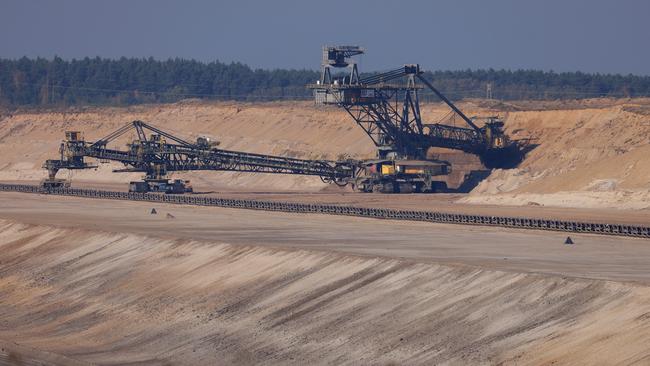Peta Credlin: Glasgow shows world not rushing to embrace net zero
The COP26 in Glasgow basically gave environmentalism a bad name as the world is no closer to being signed up to net zero, Peta Credlin writes.
Opinion
Don't miss out on the headlines from Opinion. Followed categories will be added to My News.
So much for the whole world being signed up to “net zero”.
It’s unheard of for a big international conference to conclude without a communique (the name for the usual joint statement) – but there was none out of the Glasgow climate fest – precisely because that would highlight the unbridgeable gulf between the countries that can afford expensive and unreliable power, and those that can’t.
It’s all right for Britain to demand an end to coal use by 2030, even though it is back to using coal (and woodchips) itself to keep the lights on during the current European sun and wind drought.
But there’s no way that countries with much lower average standards of living, such as China and India, are going to hobble their prosperity by giving up world’s cheapest form of baseload power – and that’s still coal.
China isn’t opening more coal plants each year than Australia’s total because it’s in love with burning Australian coal. It’s opening them because it makes economic sense, despite the constant blather about the inevitability and cheapness of decarbonisation.

If wind and solar power were both cheaper than coal – and available 24/7 – that’s what China would be using. Instead, the Chinese are happy to demand more climate action from the West, and to manufacture most of the solar panels and wind turbines that are now destabilising our power grids, while taking no serious action themselves.
India too is putting off net zero until 2070 because their PM says his priority is to get electricity to the 100 million Indians who still don’t have it.
So rather than being the climate pariah Scott Morrison insisted we would be, but for his conversion to net zero, we’re now stuck in the middle.
We’re not with Britain and America in wanting to ban coal and cut methane by 2030. And we’re not with the majority of the world’s people in putting saving jobs ahead of cutting emissions.
To his credit, though, the PM did not sign up for 2030 measures that would have deprived us of adequate baseload power and devastated our agriculture.
The real losers from COP26 were the hordes of attention-seeking billionaires demanding more austere lifestyles from us while arriving at Glasgow in some 400 private jets; and proclaiming the economics of their “green hydrogen” while insisting on even more subsidies to make it happen.
Within reason, all of us want to minimise emissions. But between the rent-seeking bankers looking to harvest green subsidies and the activist fanatics gluing themselves to roadways, Glasgow gave environmentalism a bad name.
Watch Peta Credlin on Sky News, weeknights at 6pm





